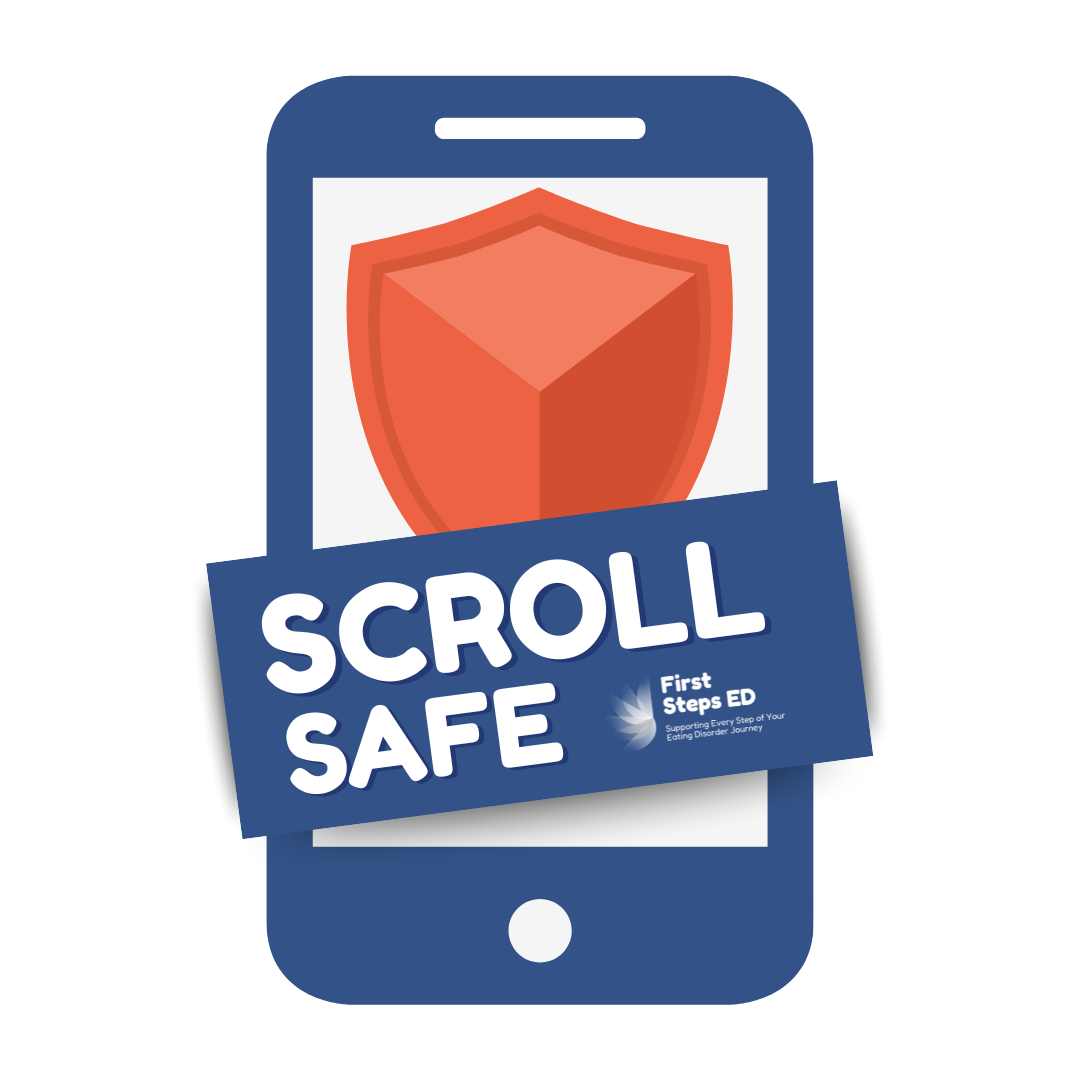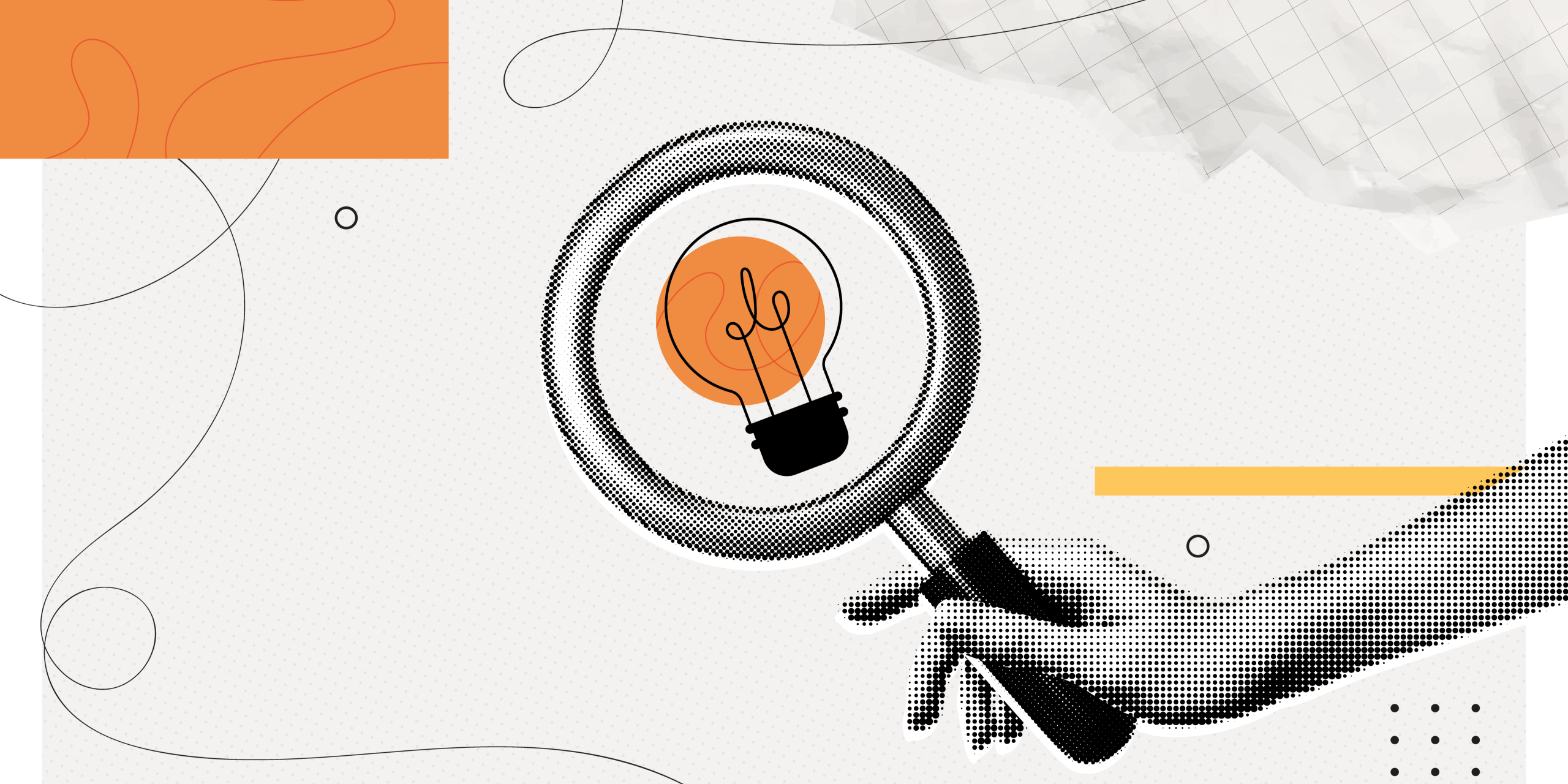Ask the experts: the impact of social media on eating disorders
Welcome to our new monthly 'Ask the Experts' blog, where we put forward some common and challenging questions about eating disorders to our First Steps ED experts. This month, to support our Scroll Safe campaign, we asked them:
What stories have you heard about the impact of social media on eating disorders that have stuck with you? If you could change one thing about the online world to make it safer for people with eating disorders, what would it be?
For most people, scrolling through social media is a relatively mindless activity. But for those at risk of or recovering from eating disorders, each swipe can feel like navigating a minefield, as witnessed by our experts on a daily basis.
When we asked them about the stories that have stuck with them and what they would change about the online world, their responses revealed the complex ways social media both harms and could potentially heal.
When achievement isn't enough
Psychotherapist Cleo Reeves recalls working with a client whose eating disorder was disguised as dedication to fitness. A breakthrough came when they compared the client's rigid dietary rules with those of professional athletes she admired. For weeks, this comparison had been motivating, until a celebrity endorsement changed everything.
"Serena Williams' recent endorsement of weight loss jabs created a real setback," Cleo explains. Her client's reaction was heartbreaking: "This just confirms to me that it doesn't matter how much you achieve in life, you have no value unless you are thin."
This story illustrates a troubling reality supported by research: nearly half of teens say that social media worsens their body image, and those who scroll for over three hours a day are twice as likely to develop eating disorders 1.
The rabbit hole of comparison
Senior Specialist Support Officer Zoe Burnett sees the same pattern repeatedly: "One of the biggest stories I hear, time and time again, is about comparison." The digital landscape makes this comparison inescapable.
But the comparison trap doesn't end with illness – it follows people into recovery. "People may see polished recovery profiles and feel like they're 'failing' because their own recovery doesn't look the same," Zoe observes. The reality she witnesses daily is far messier: "Recovery is rarely neat. It's messy, emotional, and utterly exhausting. It can feel like a full-time job."
This disconnect between social media and reality starts to take effect early – a Girl Guides survey (2020) found that 34% of women and girls aged 11-21 will not post a photo of themselves unless it has been edited 2.
Young children and body image
A shocking example of social media's influence is Cleo's account of an 11-year-old's request. A friend's daughter approached her parents asking for lip filler, explaining that she worried no one would like her at her new school because her lips "aren't big enough" to achieve the look she sees in online makeup tutorials.
"She has a restricted-access phone without social media; she has been viewing these videos with her friends on YouTube," Cleo notes. This reveals how pervasive these influences have become and how hard it is to shield children from content that promotes surgery as a normal beauty routine.
The wild west of wellness
"It is frighteningly easy to come across dangerous and unsafe 'tips' online about food, weight, and body shape," Zoe says. "From celebrities promoting the latest fad diet to entire communities sharing harmful advice, this content is everywhere. Sadly, it no longer even surprises me how accessible it is."
This accessibility of harmful content exists in what Cleo describes as "the wild west" of social media, where anyone can offer advice regardless of qualifications or intentions. The lack of regulation means that disordered eating tips disguised as wellness advice proliferate unchecked, reaching vulnerable users who may not recognise the danger.
A vision for change
Despite these worrying trends, our experts remain hopeful about the potential for positive change. Their vision covers three themes: transparency, accountability, and authenticity.
Holly Whitehead, All Ages Services Director, advocates for proactivity from platforms: "I would limit harmful content by making platforms proactively filter out and reduce the visibility of posts that promote disordered eating behaviours, while at the same time boosting supportive, recovery-focused communities and resources. That way, people are less likely to encounter triggering material and more likely to find safe, compassionate spaces that encourage healing rather than harm."
Cleo wants to see a system of transparency where social media users would have to declare financial interests and credentials. "Having those who post on social media declare if they are profiting from content and if so, who by and why is so appropriate," she argues. She imagines clear categorisations: content marked as "unqualified opinion," "verified appropriate professional," or "sponsored by", allowing users to make informed decisions about what they consume.
This transparency would extend to visual content, too. "I also feel it would be useful for all social media users to have to declare if they are using filters, editing tools or professional equipment to break the notion that social media is reality, because it is not."
Zoe focuses on safeguarding: "What I would love to see is stricter safeguarding, both for those posting and for those consuming this content. Not as a punishment, but as a way of checking in and ensuring the person posting is truly okay."
Recovery deserves reality
Crucially, our experts want to see recovery content that reflects truth rather than aspiration. As Zoe puts it: "Recovery is possible, but it's also hard work. It can feel messy, it can feel endless, but it is worth it. Every stumble and every step forward is part of the process. You don't need to recover perfectly, you just need to keep going."
This message of authentic hope contrasts with the polished recovery narratives that dominate social feeds. Real recovery involves setbacks, difficult days, and gradual progress, not the linear transformation stories that generate likes and follows.
Reasons for hope
Despite the challenges, Cleo sees signs of positive change: "I think we are moving into an era of change where people are craving truth and authenticity, and so I am optimistic that change will come. We are all learning together, so we need to listen to each other now."
As more people recognise the difference between curated perfection and real life, there's hope for a digital landscape that supports rather than undermines wellbeing.
It's clear that the need for safer online spaces has never been more urgent. Find out more about what we're doing to create these safer spaces, and how you can get involved, here: https://firststepsed.co.uk/scrollsafe/
If you or someone you know is struggling with an eating disorder, remember that support is available. Click here for more information: https://firststepsed.co.uk/services-and-support/


